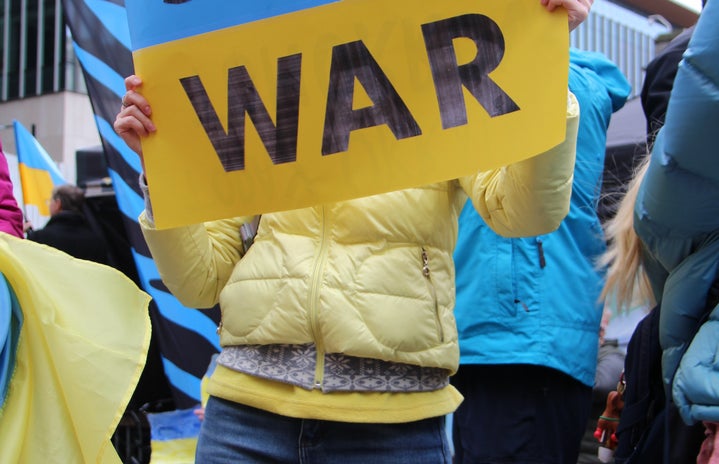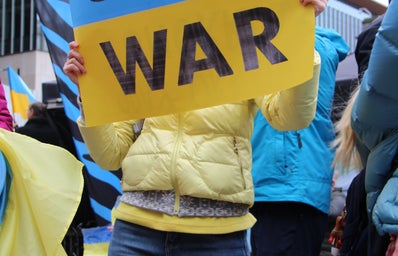Russia’s invasion of Ukraine, which has been ongoing since February of 2022, has had huge repercussions globally. The number of casualties is now estimated to have reached 500,000, and over 10 million Ukrainians have been forced to flee their homes due to fighting. As a response to this invasion, the UN’s General Assembly moved to vote on whether to suspend Russia from its Human Rights Council.
The council is made up of 47 states which are elected every 3 years by the UN’s General Assembly. Each member state is ‘responsible for the promotion and protection of all human rights around the globe’. However, this duty is clearly in contradiction with Russia’s conduct during its invasion of Ukraine. Amid allegations that the Russian military was committing war crimes in Ukraine, the General Assembly voted in favour of suspending Russia from the council.
Following this expulsion, a UN report was commissioned to examine the accuracy of allegations that Russia’s military were committing war crimes in Ukraine, with several human rights experts spending over a year investigating the claims. In a statement released at the end of September, the UN’s Commission of Inquiry on Ukraine declared to have found ‘continuous evidence’ that the Russian military had committed, and continue to commit, war crimes in Ukraine, including sexual violence against citizens, torture resulting in death, attacks on civilians, and the removal of Ukrainian children to Russia.
Yet just a day after this statement was released, the BBC have revealed that Russia is running an election campaign to re-join the Human Rights Council. If re-elected, Russian diplomats will be able to contribute to and influence discussions on human rights violations and how the international community should effectively respond to these.
It is hard to see how it would ever be appropriate for Russia, a state involved in ongoing human rights violations against civilians during an illegal invasion of another state, to have a say on these issues.
However, looking at the other members of the Human Rights Council, it is clear that Russia is not the only state which is both a human rights abuser while simultaneously aiming to influence how human rights violations are dealt with by international institutions. China, for example, has been on the council for 3 years, despite evidence of its persecution of Uighurs Muslims, which violates the freedom of religion and right to life guaranteed to all people by the UN. Venezuela is also a member of the Human Rights Council, despite having some of the worst human rights scores relating to life, security and privacy.
These examples bring to light fundamental flaws in the UN’s structure, and raise questions over whether international institutions such as the Human Rights Council can actually be considered credible. Surely the council cannot work together to efficiently promote human rights causes when multiple of its members are the very same states committing the worst violations.
With the UN being founded as a means to promote international cooperation and diplomacy, it is important that all countries in the world are represented and engage in conversations, regardless of their political regime. However, in institutions of such importance as the Human Rights Council, there must be more accountability in place. The precarious and complex political context of international relations cannot come in the way of standing against human rights atrocities committed by states.
In order to retain credibility, then, a shakeup in the UN’s internal structure is clearly needed. There must be more accountability for Russia’s deplorable violations of the rights of Ukrainians to life and liberty, and this must include disallowing them from sitting on an international council which claims to promote the very rights Russia is disregarding every day. With Russia sitting on the council, the UN would not be able to effectively intervene to protect Ukrainians from the illegal violence they continue to face daily.
The UN must update its regulations to prevent a state which has been found to be currently committing human rights violations from being able to re-join the Human Rights Council. Only then can the UN credibly claim to be effective promoters of human rights causes.


